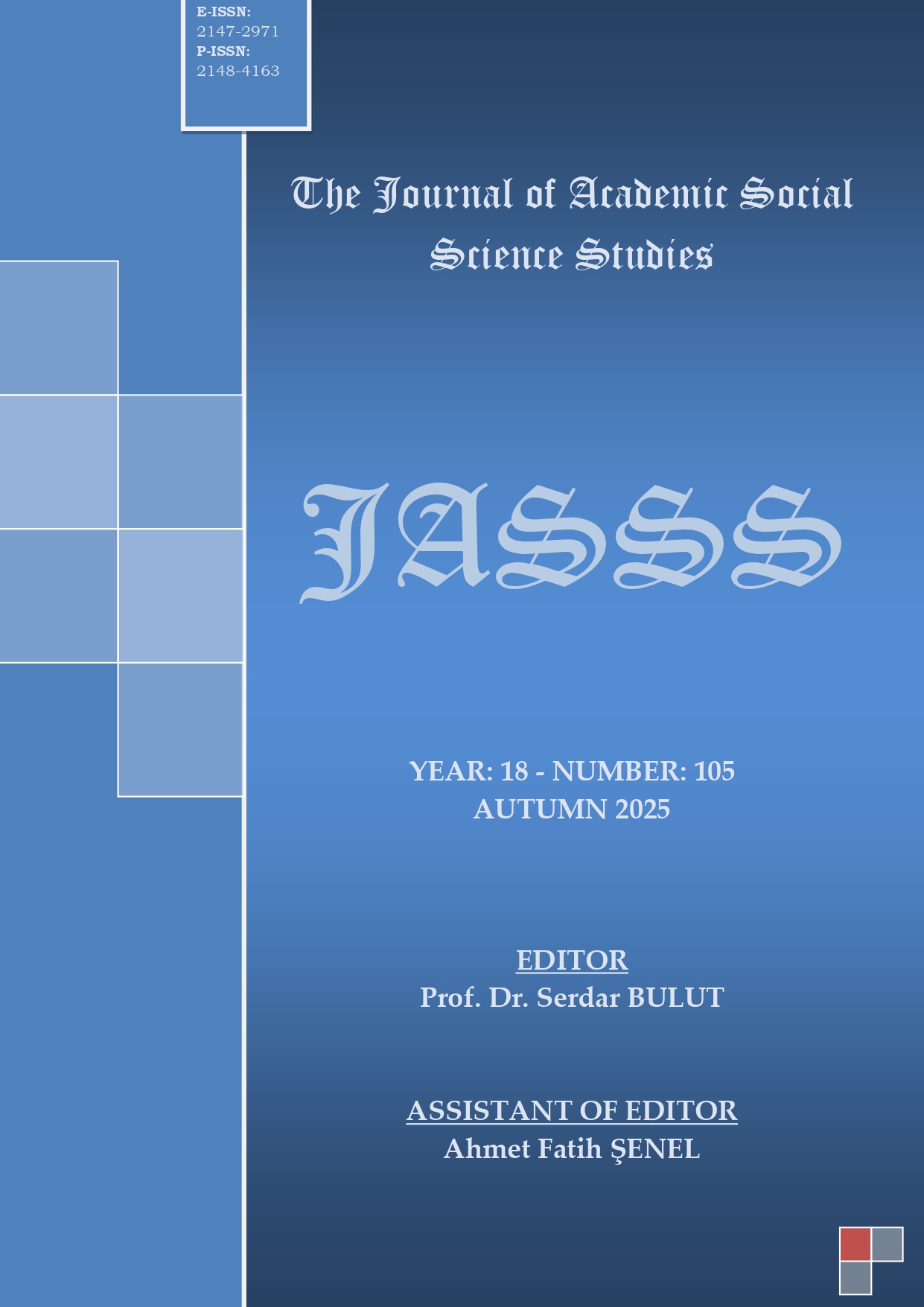Author :
Abstract
Bu araştırmanın amacı ergenlerde farklı saldırganlık türleriyle anne baba tutumları arasındaki ilişkinin incelenmesidir. Bu doğrultuda ergenlerde saldırganlığı etkileyebilecek bireysel ve çevresel etmenlerden olan anne-baba tutumları, okul türü, öğrencinin cinsiyeti önemli görülmüş ve saldırganlıkla ilişkisi incelenmiştir. Araştırma, Giresun merkezinde bulunan liselerde öğrenim gören 454 (246 kız, 208 erkek) öğrenciler üzerinde gerçekleştirilmiştir. Katılımcılara; Buss-Perry Saldırganlık Ölçeği, Çocuk Yetiştirme Tutumları Ölçeği ve araştırmacı tarafından geliştirilen Kişisel Bilgi Formu uygulanmıştır. Tüm istatistiksel işlemler SPSS 23 istatistik programında yapılmıştır. Yapılan analiz sonuçlarına göre, cinsiyet değişkenine göre; fiziksel saldırganlıkta erkeklerin, öfke ve düşmanlık boyutunda ise kızların daha saldırgan olduğu; okul türü değişkenine göre; akademik açıdan başarısız okul öğrencilerinin fiziksel saldırganlık puan ortalamaları akademik açıdan başarılı okul öğrencilerinden anlamlı bir şekilde daha yüksek olduğu tespit edilmiştir. Araştırmada, katılımcıların cinsiyetleri ve devam ettikleri okul türü kontrol edildiğinde anne ve baba tutumlarının farklı saldırganlık türleriyle ilişkisini incelemek amacıyla bir dizi hiyerarşik regresyon analizi yapılmıştır. Bu doğrultuda fiziksel saldırganlık puanlarına ilişkin yapılan analiz sonuçlarında, anne ve baba kabul/ilgi/sevgi düzeyleri düşük ve anne ve baba kontrol/sıkı denetim düzeyleri yüksek olan lise öğrencilerinin fiziksel saldırganlık düzeylerinin de yüksek olduğu görülmüştür. Sözel saldırganlık puanlarına ilişkin yapılan analiz sonuçlarında, anne ve baba kabul/ilgi/sevgi düzeyleri düşük olan öğrencilerin sözel saldırganlık düzeylerinin yüksek olduğu bulunmuştur. Öfke puanlarına ilişkin yapılan analiz sonuçlarında, anne ve baba kabul/ilgi/sevgi düzeyleri düşük olan lise öğrencilerinin öfke düzeyleri yüksek olduğu tespit edilmiştir. Son olarak düşmanlık puanlarına ilişkin yapılan analiz sonuçlarında ise, anne ve baba kabul/ilgi/sevgi düzeyleri düşük ve anne-baba kontrol/sıkı denetim düzeyleri yüksek olan lise öğrencilerinin düşmanlık düzeylerinin de yüksek olduğu görülmüştür.
Keywords
Abstract
The purpose of this study is to examine the relationship between different types of aggression in adolescents and parental attitudes. In this regard, parental attitudes, school type, gender of the student, which are among the individual and environmental factors that may affect aggression in adolescents, were considered important and their relationship with aggression was examined. The research was conducted on 454 students (246 female, 208 male) studying in high schools in the central Giresun. Buss-Perry Aggression Questionnaire, Child Rearing Attitudes Scale and Personal Information Form developed by the researcher were applied to the participants. All statistical procedures were performed in SPSS 23 statistical program. The results of the analysis showed that, according to the gender variable, boys were more aggressive in physical aggression and girls were more aggressive in the anger and hostility dimension. According to the school type variable, the mean physical aggression scores of academically unsuccessful school students were significantly higher than academically successful school students. In the study, a series of hierarchical regression analyses were conducted to examine the relationship between parental attitudes and different types of aggression when the participants' gender and the type of school they attended were controlled. Accordingly, the results of the analysis of physical aggression scores revealed that high school students with low levels of parental acceptance/interest/love and high levels of parental control/strict supervision also had high levels of physical aggression. In the results of the analysis of verbal aggression scores, it was determined that students with low levels of parental acceptance/interest/love had high levels of verbal aggression. In the results of the analysis of anger scores, it was found that high school students with low parental acceptance/interest/love levels had high levels of anger. Finally, the results of the analysis of hostility scores revealed that high school students with low levels of parental acceptance/interest/love and high levels of parental control/strict supervision also had high levels of hostility.





